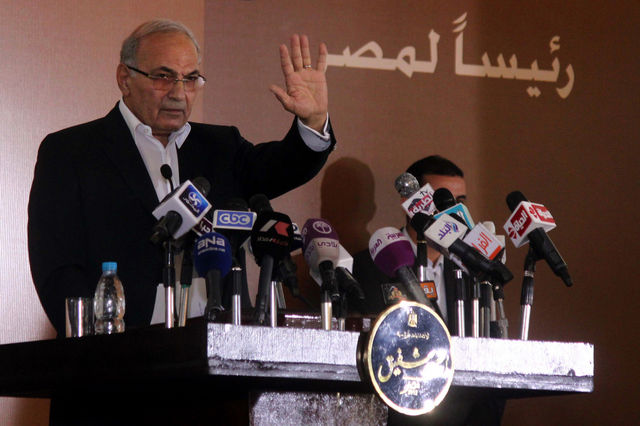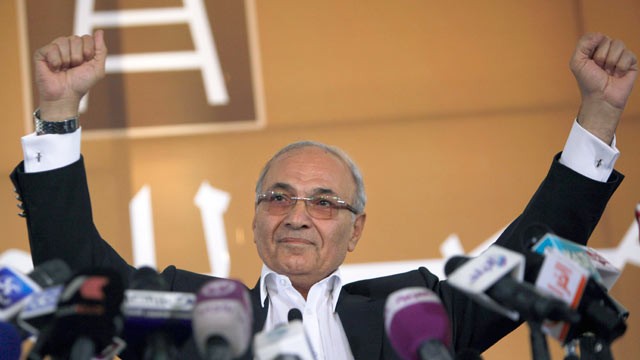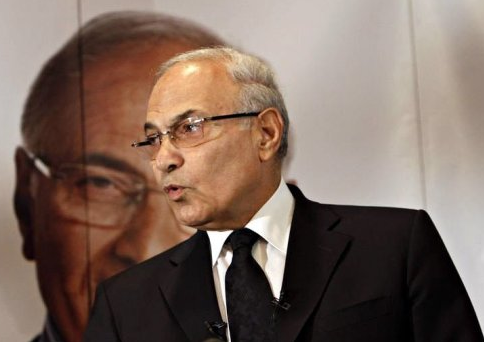Paath paved for Al-Sisi’s second term?
Incumbent president yet to submit list of accomplishments as promised, complex situations…
A Wise Decision
Last Wednesday, I wrote an opinion piece entitled “A Crucial Year” that…
Shafiq renounces plans to run for 2018 presidential elections
Ahmed Shafiq, the last prime minister under deposed president Hosni Mubarak and…
Shafiq denies detention allegations, says ‘free, not kidnapped’
UAE authorities told Shafiq he has to leave, is welcome no more,…
Op-ed review: writers support Al-Sisi, say MB backing Shafiq
Ahmed Shafiq continued to receive media attention as he returned to Egypt…
UAE authorities detain, deport Ahmed Shafiq to Egypt
Shafiq announced intent to run for Egypt’s 2018 presidential election
Ahmed Shafiq announces bid for 2018 election: Reuters
Ahmed Shafiq, the last prime minister under deposed president Hosni Mubarak and…
Ahmed Shafiq free to return to Egypt after ban lift
The former prime minister and presidential candidate could return and participate in…
Ahmed Shafiq pursues court case to have name removed from ‘wanted’ list
The court set the next hearing date for 15 August
Shafiq joins wave of criticism against government in islands dispute
Former presidential runner-up accuses government of monopolising decision-making process







